PCEPSDI Hosts “Sustainable Meetings and Functions” Training Webinar for the MICE Industry
As a key player in the tourism industry of the Philippines, and as part of the beneficiary sectors of the Transforming Tourism Value Chains (TVC) project, the Meetings, Incentives, Conferences, and Events (MICE) sector drives industries and societies in the Philippines by generating business and fostering innovation. It provides both MSMEs and large companies the avenue to position themselves in the market. The MICE sector also plays a huge role by providing a space for different sectors and agencies to learn from each other and collaborate on solutions and strategies that can help tackle climate change. The sector is also one of the hardest hit sectors by the COVID-19 pandemic, with gatherings restricted as the cases fluctuate in the country. With the aim of assisting the sector to recover sustainably, the Philippine Center for Environmental Protection and Sustainable Development, Inc. (PCEPSDI), in collaboration with the Philippine Association for Convention/Exhibition Organizers and Suppliers (PACEOS), a member of the Philippine Stakeholders Advisory Group on Sustainable Tourism, which oversees the TVC project, hosted a knowledge-sharing session on “Organizing Sustainable Meetings and Functions” on December 15, 2021. The event was attended by around 70 representatives from the tourism industry, from the private, academe, and government sectors, keen on getting a comprehensive overview of COVID-19 impacts on the MICE sector, learning about government programs in supporting the sector, and its international importance to the Sustainable Development Goals, and finally considering how to incorporate climate action into MICE operations. Moderated by Mr. Jonas Marie Dumdum, Project Coordinator from PCEPSDI, the event had two panels, the first of which started off by Atty. Maria Anthonette Velasco-Allones, Chief Operating Officer of the Tourism Promotions Board, who presented the TPB’s plans on recalibrating the MICE Roadmap of 2030. The four pillars of this recalibration looks at infrastructure, upskilling and reskilling human resource, marketing, and aligning with national and local government programs. The second speaker of Panel A was SMX Convention Center’s (SMXCC) sustainability champion, Ms. Alexis Bautista, Food Hygienist, who expounded on their business’ Safety Protocols. Ms. Bautista also shared their strategies on keeping SMXCC operations environmentally-friendly, in line with SM Hotels and Convention Centers (SMHCC)’s Sustainability Program. Some of these measures are: serving one plant-based and/or local menu during lunch, using plastic-free alternatives such as water pitchers and minimizing sachets, conducting the Trash to Cash program, and monitoring GHG emissions (in collaboration with PCEPSDI). Mr. Joel Pascual, President of PACEOS was the third speaker of Panel A, who shared his insights on how MICE Organizers are operating safely and sustainably in the new normal. Some of the measures he shared are: online/ digital payments, hybrid events, using sustainable materials, rethinking gifts and recognitions/awards, and reusing of booth setup. Panel B showcased presentations from the NGO sector, starting with the recorded presentation of Ms. Shelley Carbonel, Program Manager from Mother Earth Foundation, who talked about hosting zero waste events based on their experiences in holding their annual Zero Waste Fairs. One of the suggestions from Ms. Carbonel was to choose sustainable vendors or caterers by partnering with the local community. She also suggested hosting events that encouraged public/local transportation. Following Ms. Carbonel’s presentation was Mr. Kiko Velhagen, Project Officer of the TVC project from PCEPSDI. Mr. Velhagen talked about how to incorporate climate action in the MICE sector, by first presenting the project’s collaboration with the Department of Tourism in developing their Sustainable Events Checklist, which aims to guide event organizers in implementing sustainability, promoting efficiency in resource consumption and mitigating carbon emissions in most aspects of the event. The Checklist also includes leveraging the Resource Efficiency (RE) Tool of the project, which can help organizers track their emissions per delegate and in operations. Using the Checklist and the RE Tool helps MICE businesses be more qualified to be signatories of international initiatives such as the Global Tourism Plastics Initiative and the Net Zero Carbon Events Pledge. Closing the program was a recorded message of support from Usec. Verna Esmeralda Buensuceso, from the Tourism Development Planning division of the DOT. Usec. Buensuceso shared the significance of all of the programs and projects being undertaken since they are in alignment with the recalibration of the MICE Roadmap 2030, where sustainability is embedded to crisis-proof the industry. She also shared that the MICE sector is exceptionally placed to see the COVID-19 as a learning opportunity to strategize and plan for the eventual resumption of MICE in a sustainable manner. For inquiries about this event, please contact: Kiko Velhagen, Project Officer, tvc4relcd@gmail.com Andrea Go, Project Assistant, andrea.go@pcepsdi.org.ph


